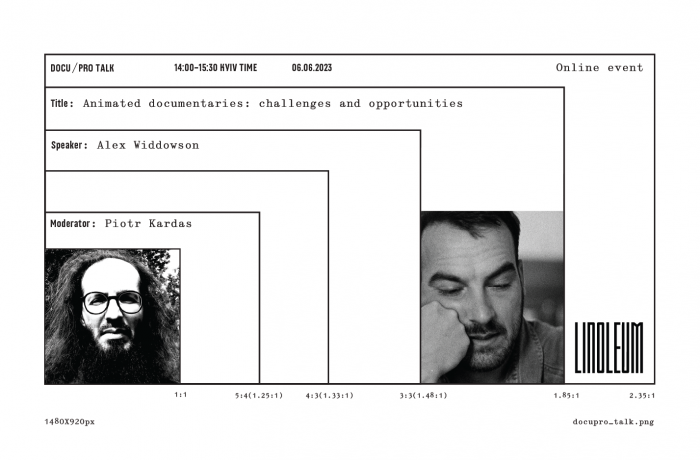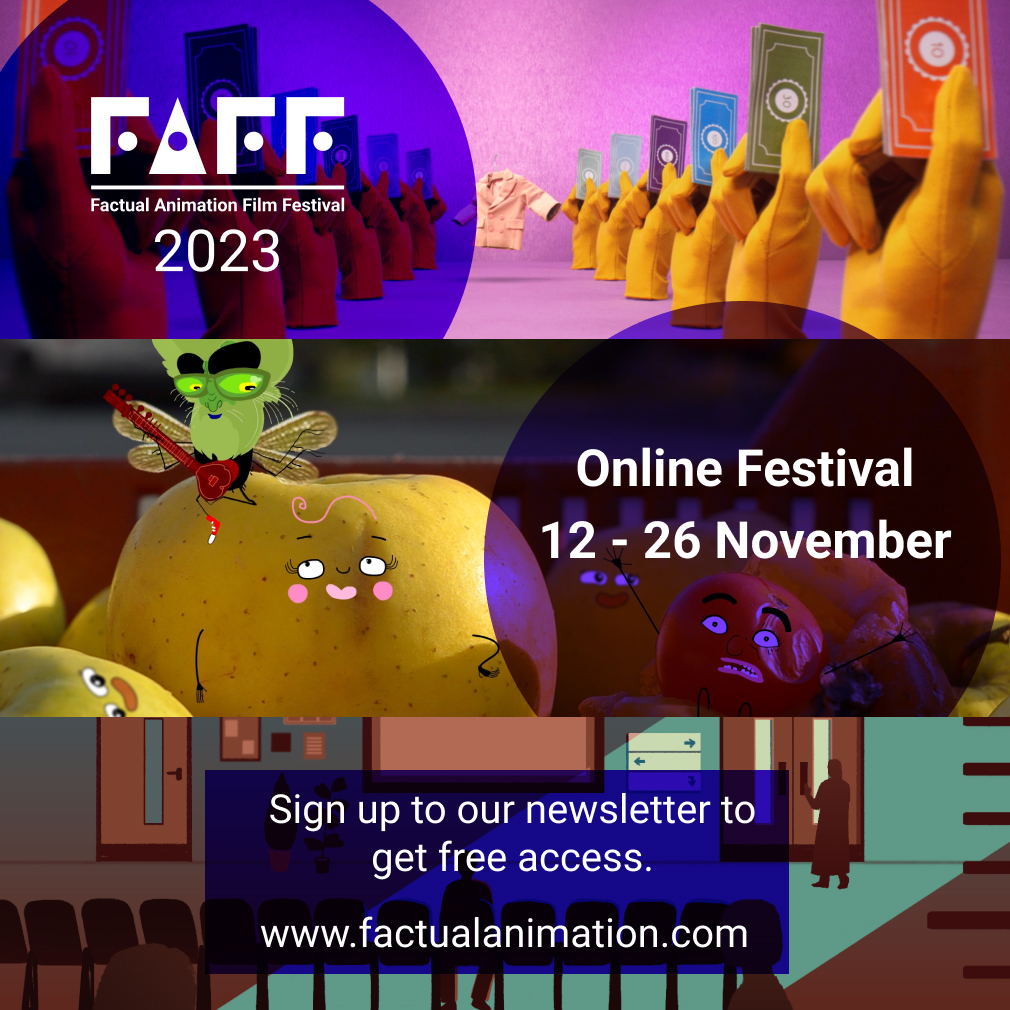Watch the full talk here: https://docuspace.org/eng/project/dokumentalna-animaciya–vikliki-ta-mozhlivosti Even though the first animated documentary (The Sinking of the Lusitania) was released in 1918, the genre was considered as a paradox for a long time, and needed a couple of quite powerful breakthroughs – Waltz...

Watch the full talk here: https://docuspace.org/eng/project/dokumentalna-animaciya–vikliki-ta-mozhlivosti
Even though the first animated documentary (The Sinking of the Lusitania) was released in 1918, the genre was considered as a paradox for a long time, and needed a couple of quite powerful breakthroughs – Waltz with Bashir and Flee – to win recognition from the wider audience and industry decision-makers. Today animation’s use in documentary filmmaking has truly flourished. More and more filmmakers are finding their creative freedom and new exciting challenges in this genre.
DocuDays UA, a Ukranian Human Rights Film Festival, invited Piotr Kardas, a film curator specialising in animated documentaries, and Alex Widdowson, a London-based multi-award-winning animated documentary director and researcher specialising in the representation of neurodivergence and psychology, to talk about how documentary and animation can be used and mixed creatively in filmmaking, as well as how to find a balance between the seemingly limitless potential of animation and the duty of a documentary filmmaker to create authentic and ethical representations of people and the world.
PARTICIPANTS:
Piotr Kardas (moderator): the founder and director of the O!PLA Animation Film Festival and many other festivals, including the animated documentary festival Raising of the Lusitania
Alex Widdowson (guest speaker): multi-award-winning British animated documentary filmmaker, the director of the Factual Animation Film Festival, a co-host of the Autism through Cinema Podcast, and a Ph.D. candidate at Queen Mary University of London, researching animated documentary ethics.











